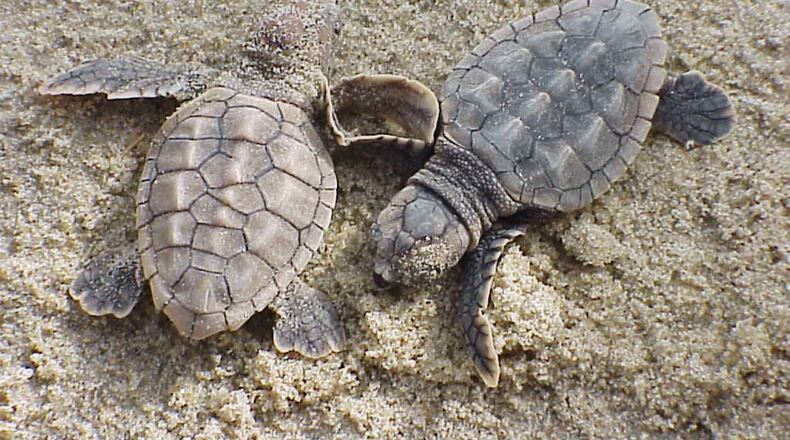August is a time of transition, when summer begins fading into fall. Here’s a look at what’s happening — or will happen — in Georgia’s wild this month:
As if to proclaim “it’s August,” dozens of “shooting stars” will streak across the northeast night sky all next week during the annual Perseid meteor shower. The sky show, the most popular of the year’s meteor showers, will peak at some 50 meteors per hour on Wednesday and Thursday nights.
On Georgia’s barrier island beaches, baby loggerhead sea turtles are hatching and crawling into the Atlantic. Some 2,400 loggerhead nests have been tallied since May. So far, more than 8,400 eggs have hatched, although few baby turtles will survive into adulthood.
In the Okefenokee Swamp and other South Georgia wetlands, baby alligators are hatching and may be heard “clucking” to their mothers.
Between now and late September, the young of most of Georgia’s 44 snake species will be born. About half the species will hatch from eggs; others will be born alive.
As the days grow shorter now, shifting light levels trigger migration.
Ruby-throated hummingbirds, including newly fledged young, are visiting backyard feeders to quickly fatten up for migration to Mexico and Central America. Male adults already are headed south. So are orchard orioles, prairie warblers and Louisiana water thrushes. Purple martins and chimney swifts are forming flocks for migration. Nighthawks and chuck-will’s-widows frequent the evening sky, scooping insects from the air.
White-tailed deer are shedding their thin, reddish-brown coats of summer and growing long-haired, grayish-brown coats for winter. Bucks are sporting new antlers. Gray squirrels, flying squirrels and chipmunks are giving birth to their second litters of the year.
Goldenrods, some asters, Joe-pye weed, ironweed, cardinal flower, blazing star and other late summer wildflowers bloom and attract bees, flies, butterflies and other pollinators. Blueberries, wild grapes and other wild fruits ripen.
Periodic Brood X cicadas that appeared in spring are gone. Singing at night now are the annual dog day cicadas. Katydids sing during the day.
IN THE SKY: From David Dundee, Tellus Science Museum astronomer: The moon will be new on Sunday. Venus sets in the west a few hours after sunset. Jupiter and Saturn are in the east at dark.
Charles Seabrook can be reached at charles.seabrook@yahoo.com.
About the Author
Keep Reading
The Latest
Featured



